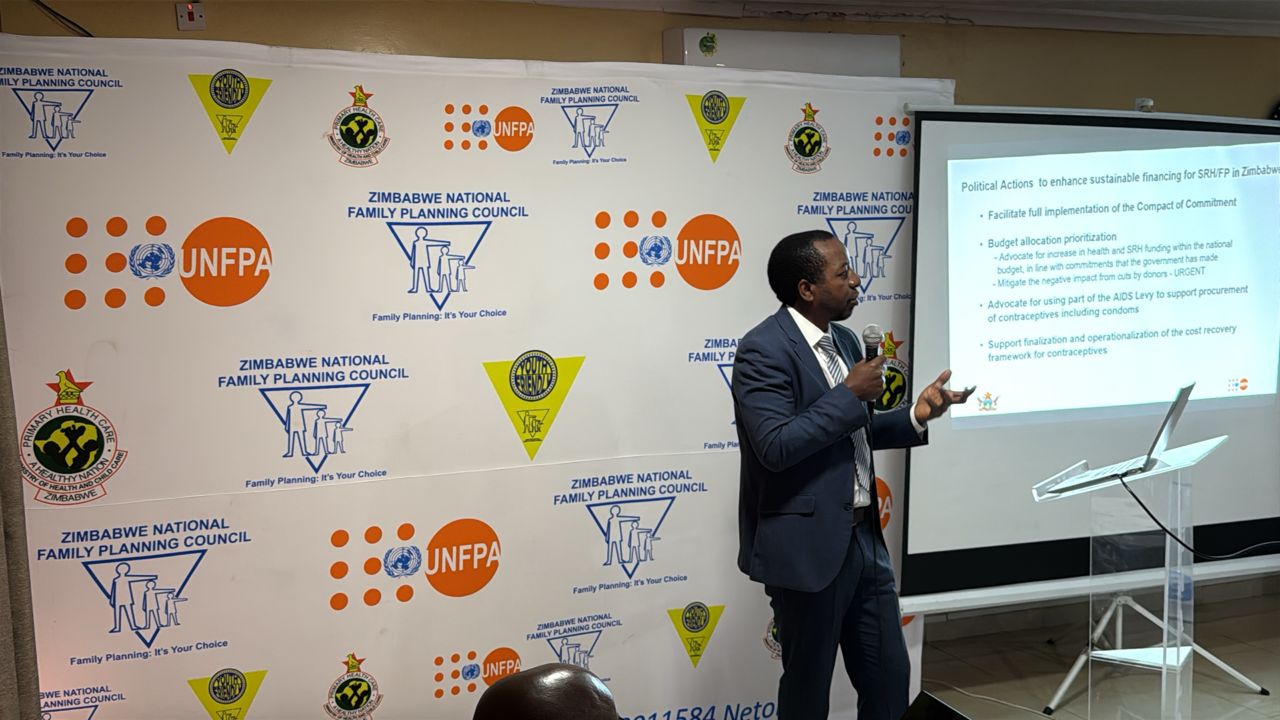 ZIMBABWE is taking proactive steps to secure the future of its reproductive health services, with the Zimbabwe National Family Planning Council (ZNFPC) engaging Parliament to boost domestic funding and reduce reliance on external aid.
ZIMBABWE is taking proactive steps to secure the future of its reproductive health services, with the Zimbabwe National Family Planning Council (ZNFPC) engaging Parliament to boost domestic funding and reduce reliance on external aid.
This came out at a high-level meeting held in Kadoma where ZNFPC laid out a case for increased local support to ensure universal access to family planning and reproductive health services.
“Using the Zimbabwe Demographic Health Survey we noted that the national teenage pregnancy is now sitting at 23 percent which is a very big number. As a country, we are targeting to reduce it down to at least a single digit and we are aiming at less than 10 percent. We acknowledge and realise that if we increase domestic financing towards family planning and sexual reproductive health programmes in the country, we can fund and support our programmes. This is where we educate and sensitise young people and parents to reduce drug and substance abuse and issues to do with teenage pregnancies. We also need support in terms of the procurement of contraceptives,” ZNFPC’s Chief Executive Officer, Mr Farai Machinga said.
To improve service delivery and financial sustainability, ZNFPC is finalising the Zimbabwe National Family Planning Cost Recovery Framework.
The initiative seeks to enhance efficiency while exploring alternative ways to fund contraceptive programs.
“As a government, we have noted some strides in terms of the efforts and commitment towards contraceptive support and for 2025, we have received a total of US$1.9 million worth of contraceptives, supporting the mantra of ‘leaving no one behind’. However, this is not enough for our programming, and reducing the ailing challenges affecting our development as a country,” Mr Machinga noted.
“We also need to ensure that we then plug the gap from the withdrawal of donor assistance which we used to receive. As ZNFPC, we have initiated the process of developing a national family planning cost recovery framework, which we are yet to get approval and also consensus from our parent ministry.”
Members of Parliament expressed strong support for ZNFPC’s mandate and affirmed their commitment to advocating for increased health allocations in the national budget.
“As the Parliamentary Portfolio Committee on Finance, we will continue to push so that we get the 15 percent which we should get. We are also working towards ring-fencing our health-related taxes so that they are disbursed to the Ministry of Health and Child Care. As parliamentarians, we do acknowledge the critical role being played by the ZNFPC, not only in fighting unwanted pregnancies, but also HIV and AIDS, mental health issues and drug and substance abuse,” Chairperson of the Parliamentary Portfolio Committee on Budget, Finance and Investment Promotion, Honourable Energy Mutodi said.
“We have taken note of the concerns raised by the Council acknowledging that we are faced with foreign funding cuts. United Nations Population Fund (UNPF) has committed to giving us at least double of whatever the government allocates us. We will lobby to ensure that the Council gets enough funding so that it carries its mandate of conducting awareness campaigns, distribution of contraceptives in hard-to-reach communities,” Chairperson of the Parliamentary Portfolio Committee on Health and Child Care Honourable Dr Josiah Makombe added.
UNPF’s reproductive health programme specialist, Dr Edwin Mpeta said domestic funding and budget allocation prioritisation are key.
“We need budget allocation prioritisation where we advocate for an increase in health and SRH funding within the national budget. More urgently there is need to advocate for the use of the AIDS Levy to support procurement of contraceptives including condoms and support finalisation and operationalisation of the cost recovery framework for contraceptives.”
Zimbabwe’s broader health sector reforms, including the introduction of a sugar tax, the proposed National Health Insurance, and the implementation of health levy mechanisms, highlight the country’s increasing focus on sustainable, locally driven solutions to strengthen its healthcare system.

